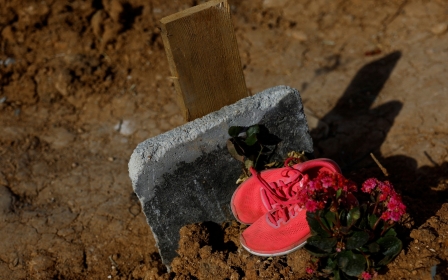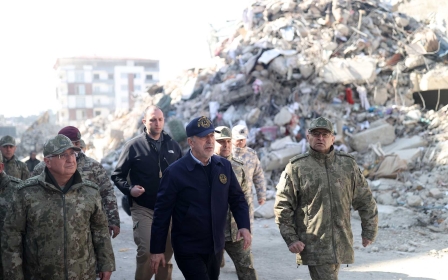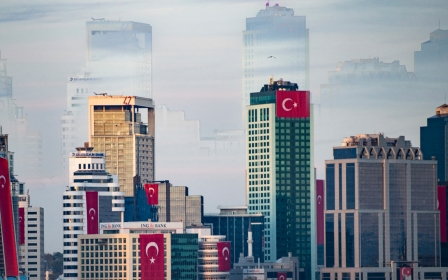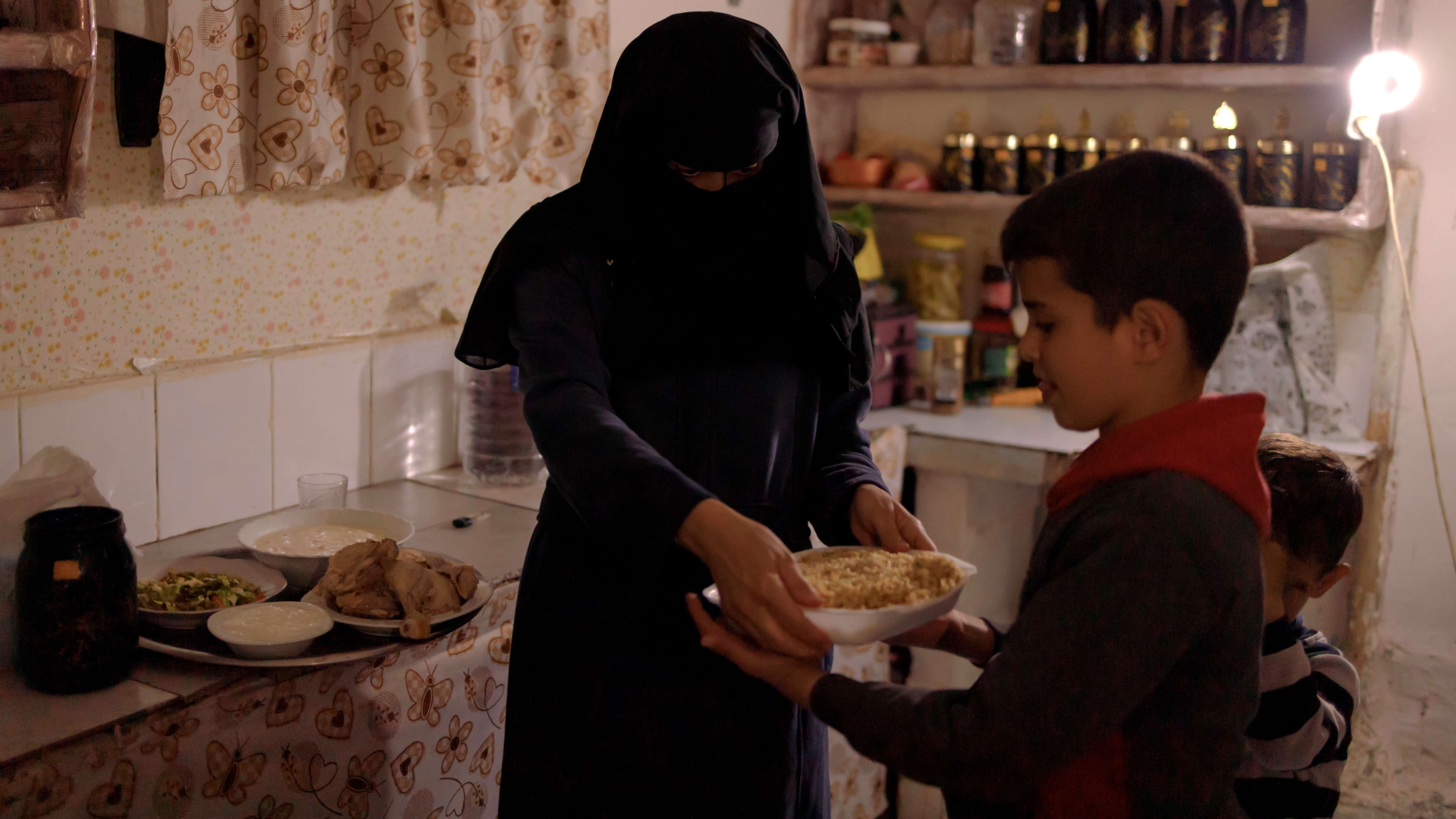
In pictures: Ramadan in Turkey's earthquake disaster zone
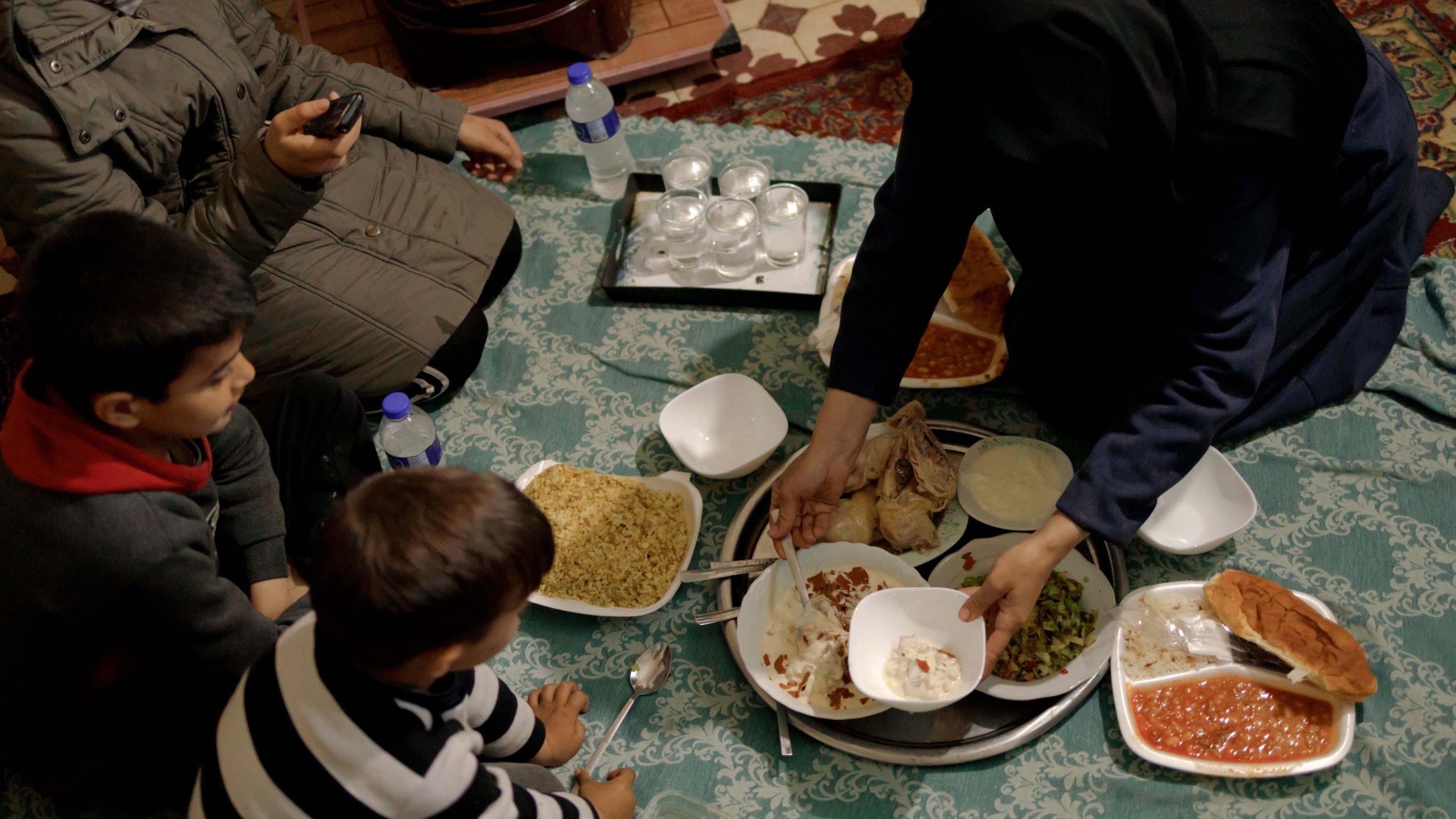
Ramadan in the southeastern provinces of Turkey has taken on a sombre tone this year after earthquakes in February killed more than 55,000 people and displaced millions. Tens of thousands have lost their homes or no longer feel safe inside them. The concurrent poor economic situation – with rising inflation causing food prices to skyrocket – has made the holy month particularly hard. In the image above, Syrian mother Batul, 32, and her children break their fast at their home in Kahramanmaras on 4 April. The family of five moved from Aleppo to southeastern Turkey in 2015 and are still waiting to be assigned a tent. The family didn’t have access to electricity for six weeks after the earthquakes and still have to collect water from outside their home. “We work, so we don’t need anything. Only a tent to feel safe,” says Batul. Her children, Maria and Abdulkader, are currently not able to attend their school as it was destroyed by the earthquakes. (All pictures by Carola Cappellari)
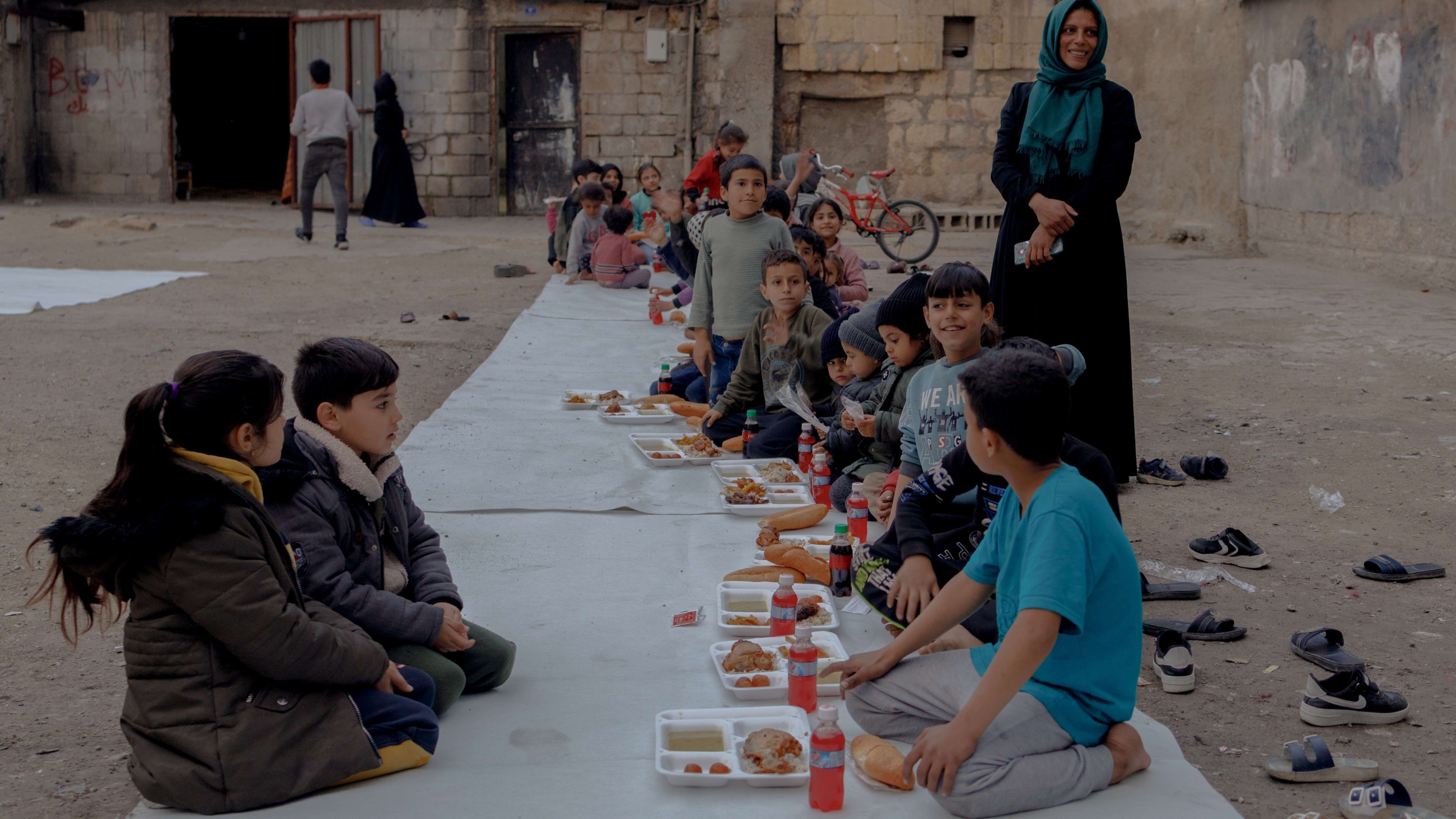
Humanitarian organisations have been helping people affected by the quakes through door-to-door food packages and communal iftar meals. Celebrating together amidst the tragedy has also brought Turks and Syrians closer. Turkey’s southeastern provinces are home to almost two million Syrian refugees, according to government estimates. Yusuf Kaya, a volunteer with local charity group Mavi Hilal (Blue Crescent), helped with distribution in Gaziantep’s Akyol district, which has a high number of Syrian residents. “It’s Ramadan, but these days there are no Syrians nor Turks, just people celebrating this holy month in difficult circumstances,” he said as his team distributed iftar to Syrian children. In the picture above, Syrian children break their fast at a public iftar organised in Akyol on the first day of Ramadan on 23 March. An estimated 5.4 million children in Syria and Turkey were impacted by the 6 February earthquakes.
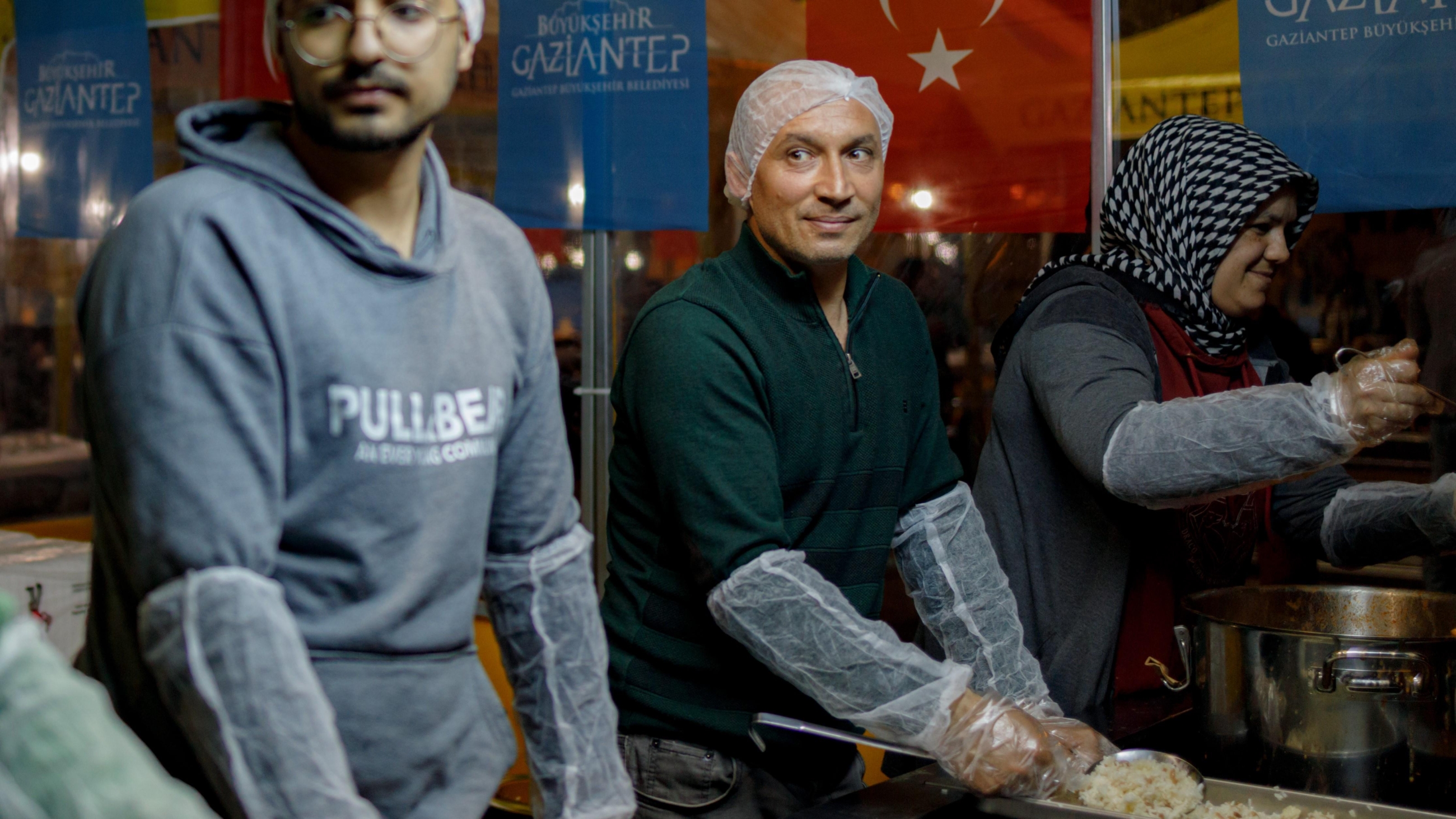
In Gaziantep there have been social tensions as a result of the conflict in nearby Syria, which has led to the city becoming home to half a million Syrian refugees. This year, in the central Democracy Square, the municipality organised a public iftar that serves more than a thousand people every evening. Its aim is to bring Syrians and Turks - the city’s two main nationalities - together in a spiritual atmosphere. A volunteer serving food says it’s important to offer relief to fellow survivors because everyone suffered, no matter how much or how little they’ve lost. “The best way to forget [about] the tragedy is to keep yourself busy by helping others and feel the true meaning of this holy month,” he says as he puts dates on a food tray.

Vendors sell Syrian Ramadan sweet bread (maarouk) and Turkish Ramazan pidesi to locals in the Akyol neighbourhood of the city of Gaziantep, Turkey, just before iftar, on 23 March, the first day of Ramadan. The earthquake happened amid a chaotic economic situation in Turkey, with inflation driving up the price of essentials.
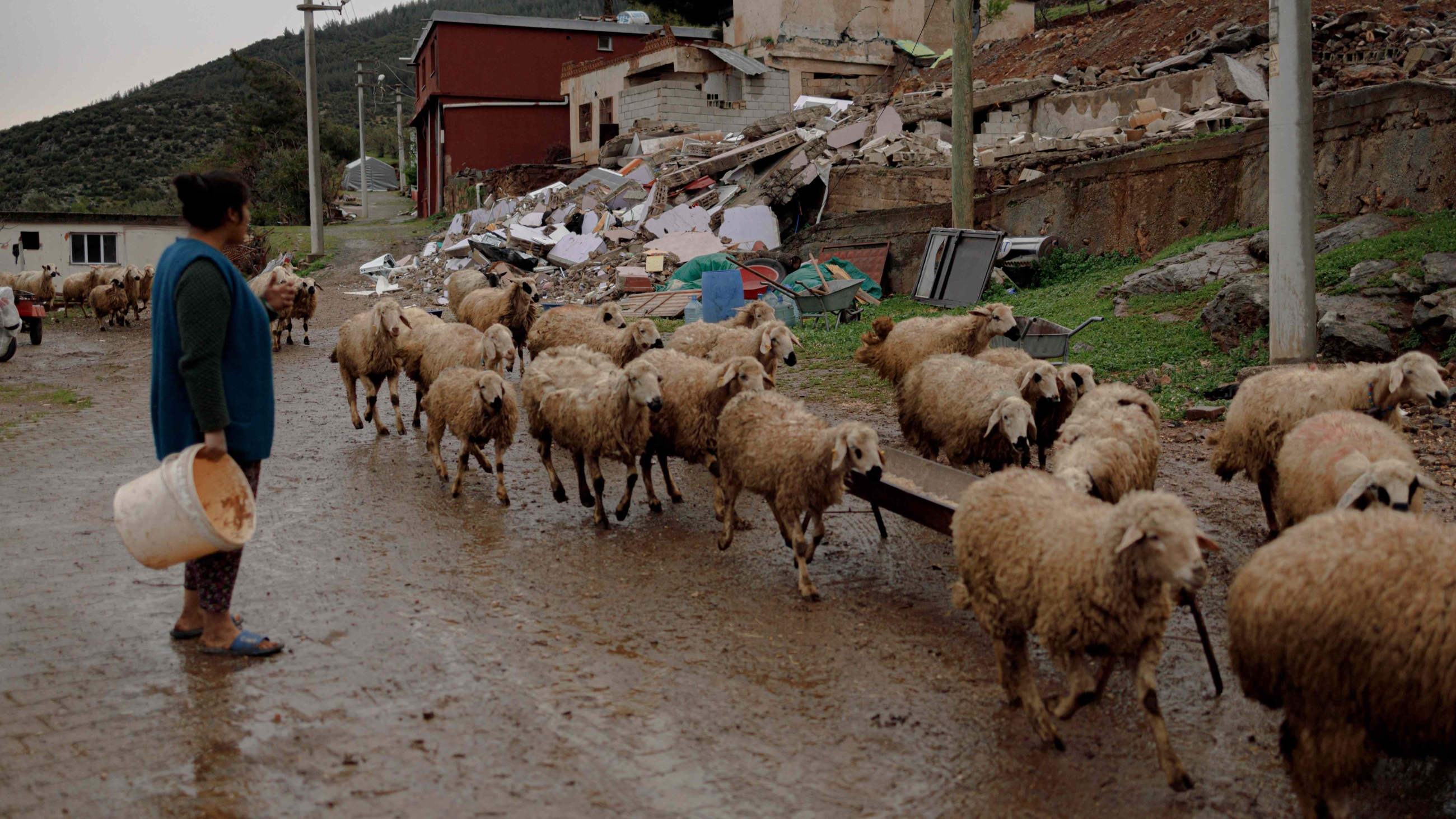
The village of Fevzipasa lies between the two districts of Islahiye and Nurdagi in the Turkish province of Gaziantep. Here, the loss of animals during the 6 February earthquakes meant financial insecurity for many local families whose main income came from farming and the sale of produce to neighbouring villages and towns.
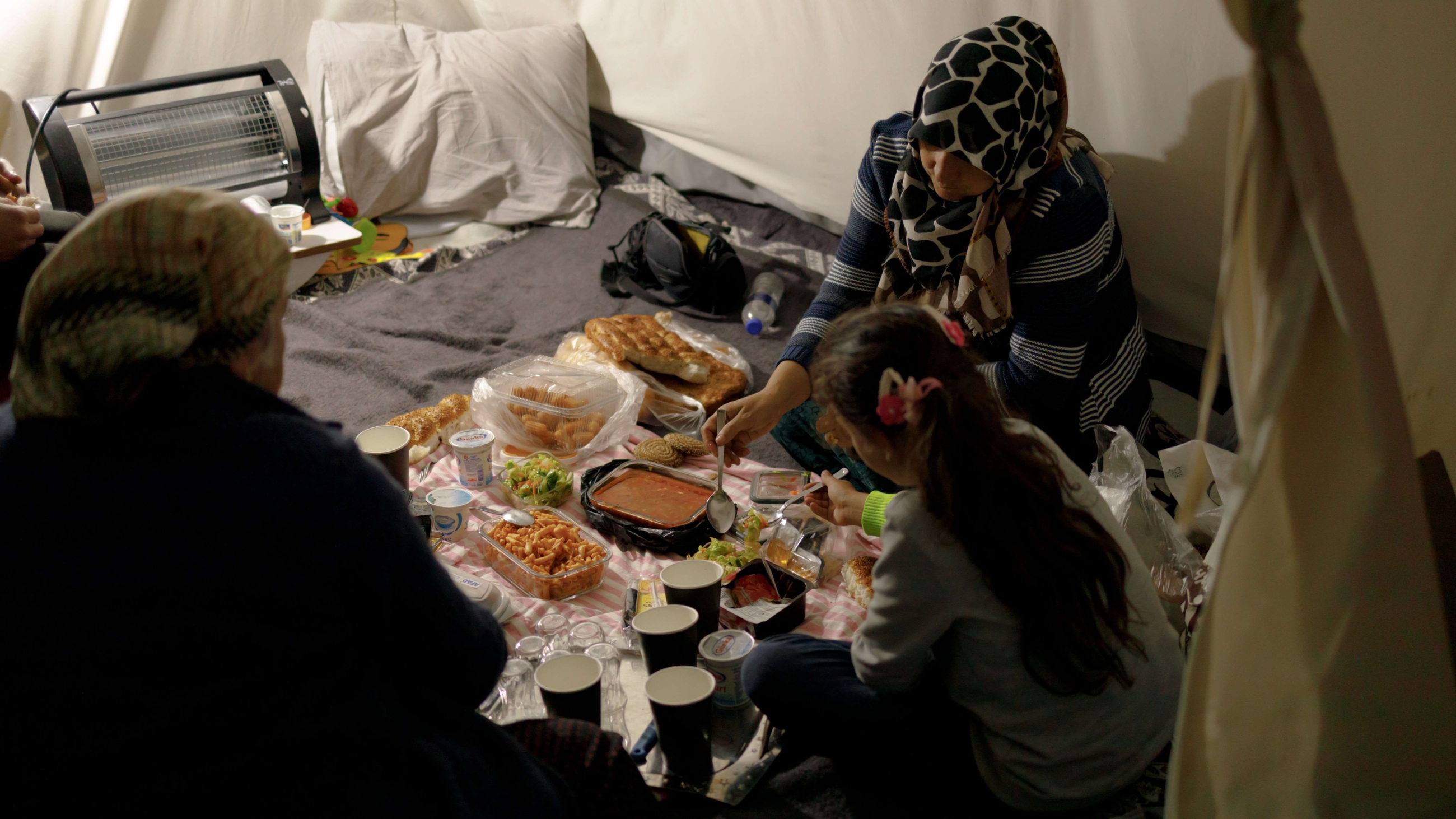
Fatma, 50, her daughter Zeinep, 10, and her sister Zubaida, 49, break their fast together on 5 April. This Turkish family has been living in a tent in the small village of Hassa, in Hatay province, since the earthquake. "I would’ve never imagined I’d celebrate Ramadan without a roof over my head," says Fatma. Hatay is one of the worst-hit provinces in the region where entire cities and villages have been completely destroyed. Although Fatma’s house was only slightly damaged during the quake, the family prefers to wait for any aftershocks to cease completely before returning to their home again. Fatma says that celebrating the holy month in a tent has made this the most unusual Ramadan of her life.
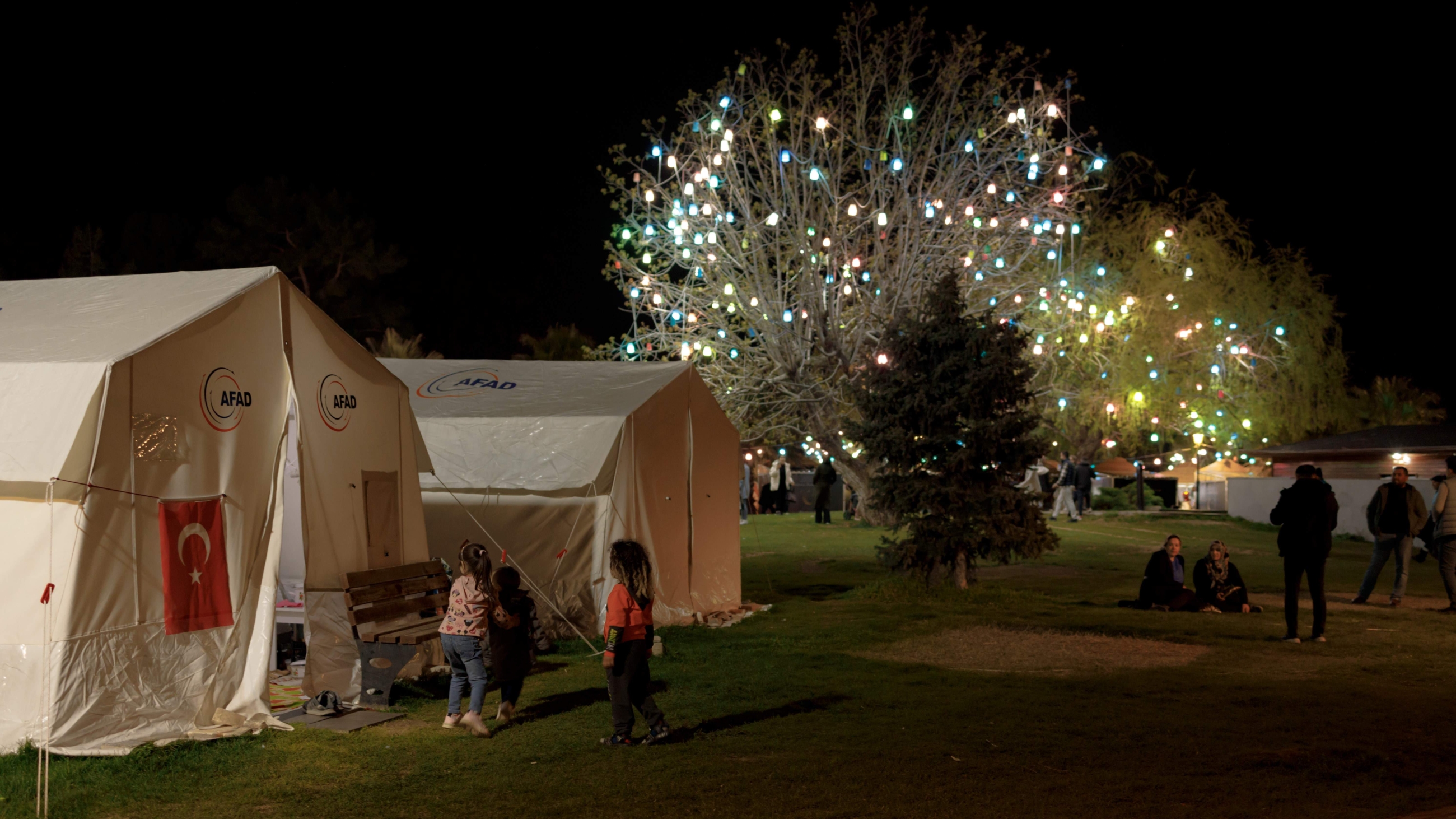
A tent settlement for dozens of displaced families beside the "Ramazan Street" event, which was set up in Gaziantep's Masal Park for Ramadan. The initiative was organised by local authorities to help people recover from the earthquakes and to keep the spiritual atmosphere of the holy month of Ramadan alive.
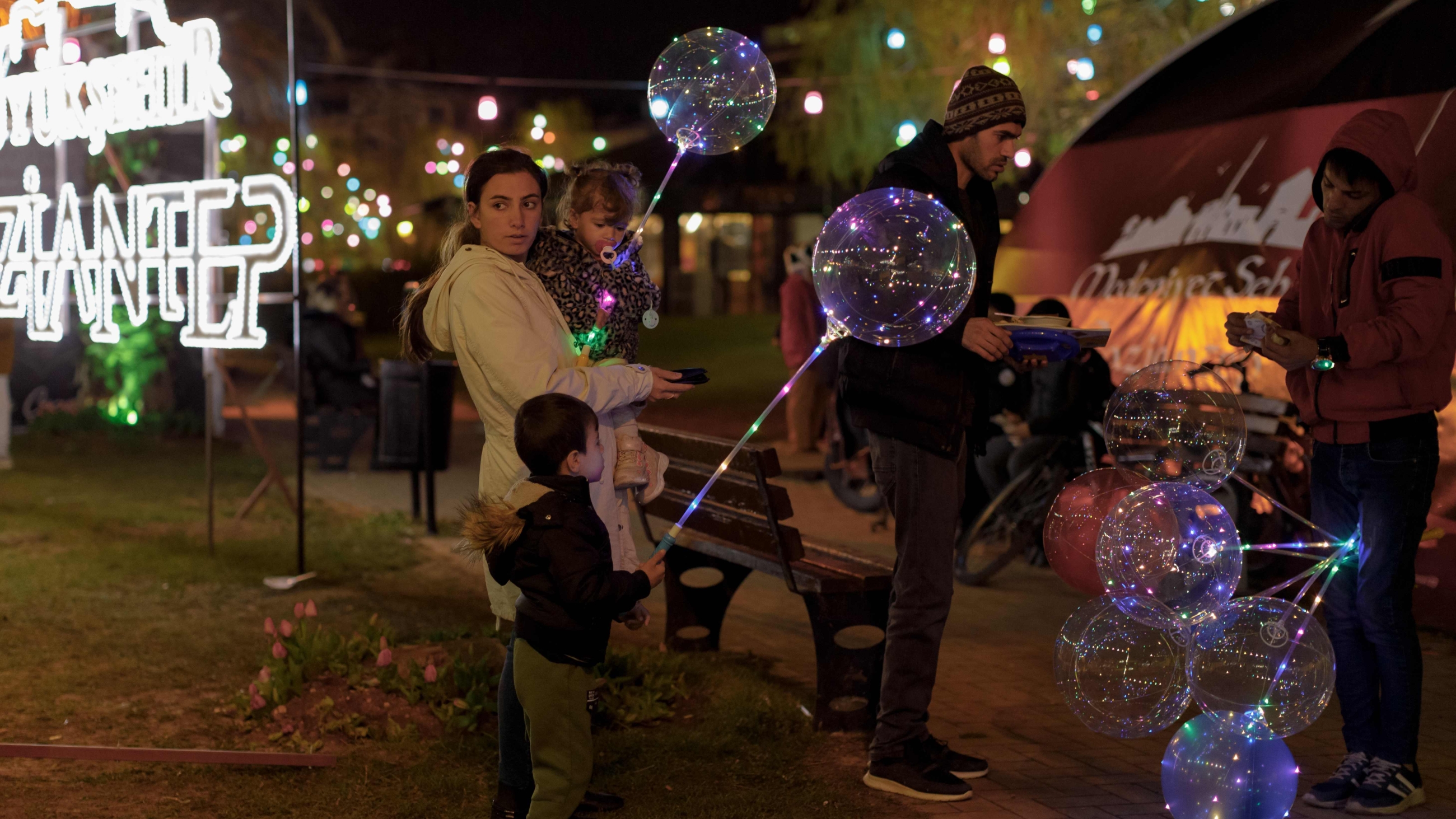
A family buys balloons from a vendor at the Ramazan Street event. The tent city set up in the park is still home to dozens of displaced families.
This article is available in French on Middle East Eye French edition.
Middle East Eye delivers independent and unrivalled coverage and analysis of the Middle East, North Africa and beyond. To learn more about republishing this content and the associated fees, please fill out this form. More about MEE can be found here.


